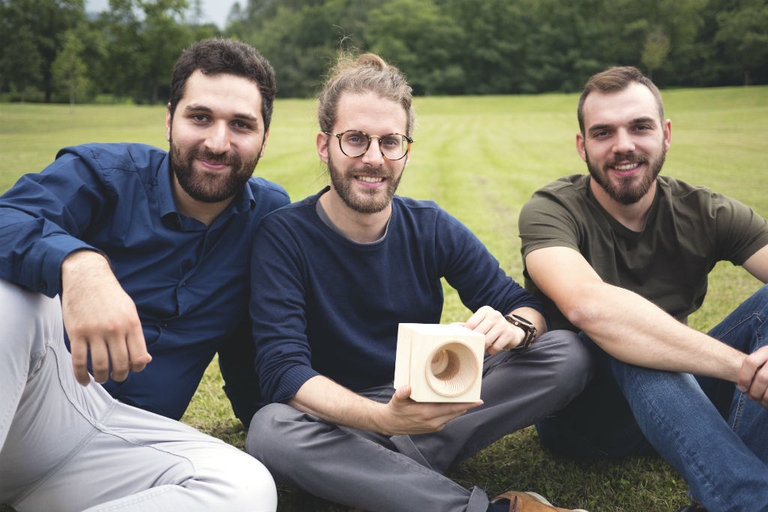https://www.lifegate.it/giornata-biodiversita-startup-foreste
- |
Protect the biodiversity to contribute (also) to the survival of mankind.With this objective, in 2000, the United Nations General Assembly established the World Biodiversity Day, which is celebrated every year on May 22nd;an anniversary also proclaimed to encourage the adoption of Convention on Biological Diversity, the international legal instrument drawn up eight years earlier for "the conservation of biological diversity, the sustainable use of its components and the fair and equitable sharing of benefits arising from the use of genetic resources".Innovation can also do its part for this great common goal:to demonstrate this, we have chosen to tell the stories of three startups who deal with forests.
Forests are a treasure of biodiversity
According to United Nations data, the forests they are home to 80 percent of the planet's biodiversity and provide habitat for millions of plants, animals and microorganisms.A true treasure of biodiversity which in recent years has gradually decreased due to anthropic activities, to make room above all for agricultural fields intended for crops for animal feed.In the last century alone, a larger quantity of forests than the entire South American continent has disappeared.THE'Europe it is one of the "greenest" continents in the world, with approximately 40 percent of its territory covered by forests.Just at the beginning of this year the European Parliament approved the Nature restoration law, a law that aims to restore the Union's terrestrial and marine ecosystems:by 2030 at least 30 percent of habitats must enjoy a "good state of health", a figure that must double by 2040 and then rise to 90 percent by 2050.

There Italian situation fortunately it goes against the global trend.In our country the forest area it is continuous increase since the end of the Second World War:as it emerges from the National Inventory of Forests and Forest Carbon Sink, currently approximately 36.7 percent of the national territory is covered by forests, with a growth of over 18 percent in the last 10 years especially in Tuscany, Piedmont and Lombardy, the most wooded regions. The Atlas of Forests of Legambiente analyzes the so-called ecosystem services generated by these green areas also from the point of view of mitigation of the climate changes:today in Italy trees manage to sequester 290 million tonnes of carbon dioxide more than twenty years ago.It therefore becomes even more interesting to find out how startups have set to work to optimally manage the forests.
Three startups that deal with forests
Forest Sharing
Innovative startup and spinoff of the University of Florence, Forest Sharing is aimed at owners of forests who are unable to manage them independently.Through a platform, they can meet each other and with businesses and professionals, becoming part of one community to create shared value from these green areas, exploiting their potential in a sustainable way.Once registered on the platform, the owner can choose which one together with the startup's technicians management methods adopt for its portion of forests (from maintenance to tourist and creative valorisation, up to logging);at that point Forest Sharing tries to aggregate different properties to develop a single project that allows the area to be valorised to the fullest.
This creates a double value, firstly from the point of view of protecting the biodiversity of the territory and secondly from an economic point of view.Furthermore, the startup acts to ensure that the forest itself generates the resources necessary for its care and protection, enhancing not only its products but all ecosystem services, such as air and water quality.
Abit Agritech
Founded by a group of young Genoese boys, Abit Agritech exploit the potential of artificial intelligence to offer farmers more efficient management of crops that enhances soil biodiversity.Starting from the assumption that land is a living and organic element, the founders of the startup have developed a software – based on mathematical models – which correlates climate data with the calculation of soil biodiversity, in order to respect and protect it.
This reality allows agricultural companies to know the level of biodiversity and soil quality, creating data and information that can be used to better direct one's work;analyzing through a dedicated platform the components and needs of the land, farmers can manage their crops more efficiently and sustainably.Opting for one cultivation system rather than another allows you to save money, make the best use of available resources and limit the use of pesticides and chemical fertilizers.
Go
The startup Go takes its name fromhomonymous storm which in 2018 shocked the Dolomites of the Triveneto area, cutting down 14 million trees in just three days.The following year three boys decided to turn this catastrophe into an opportunity rebirth, starting from the recovery of wood from felled trees with a dual objective:restore the ecosystem balance of the area and economically support local communities.It was born like this Vaia Cube, a passive speaker to naturally amplify the sound of smartphones made with wood recovered from plants felled by the wind.

Five years later, the choice to allocate part of the proceeds to the restoration of the ecosystem has allowed Vaia to contribute to the planting of 90 thousand trees on the Dolomites.Over the years this reality has then produced the Go Focus (a visual amplifier for smartphones) and has gradually broadened its field of action through events, environmental education projects in schools and growing investments in innovation and research:recently started a collaboration with the University of Trento to create a biomaterial starting from wood olive trees affected by Xylella.

